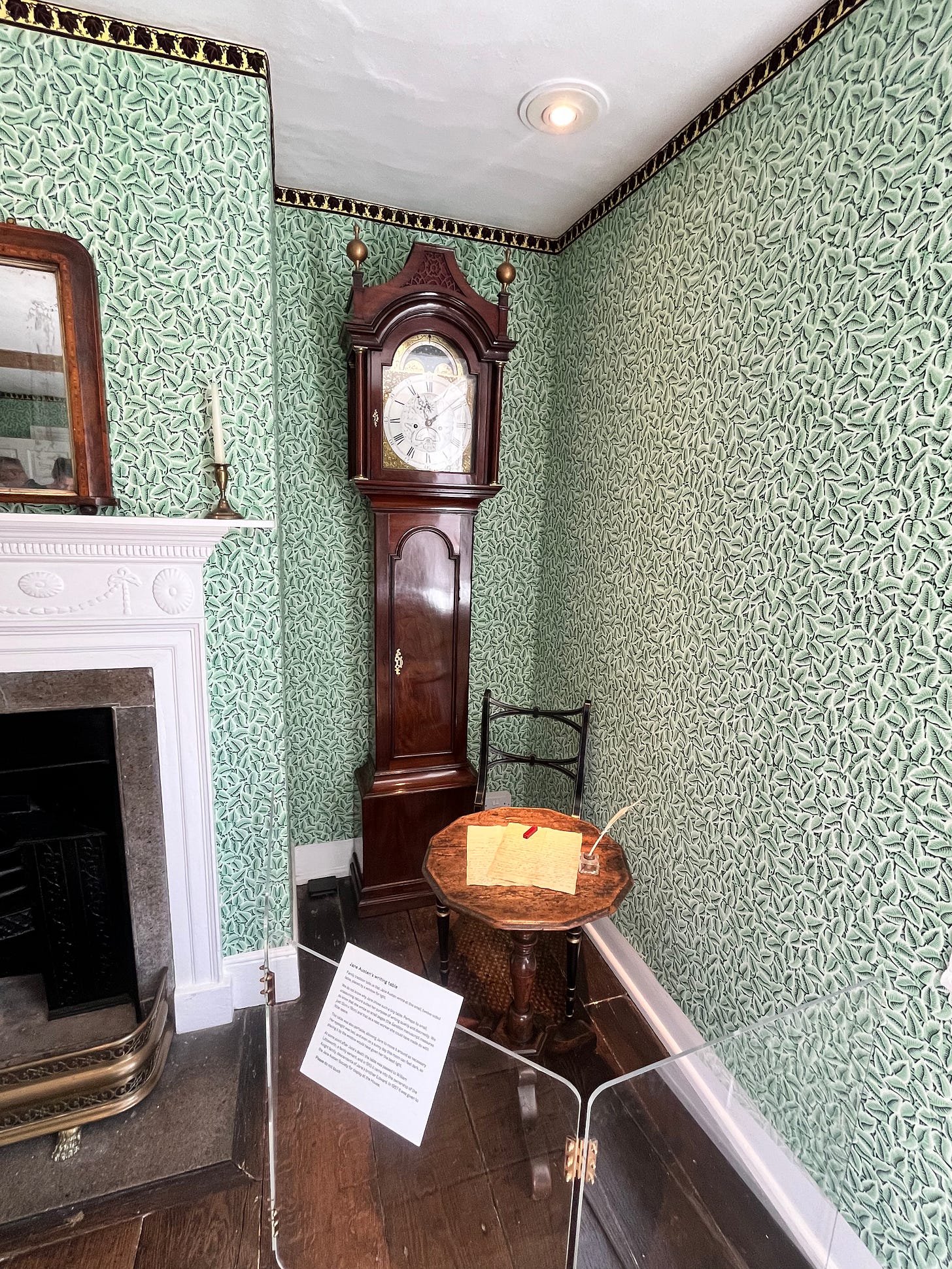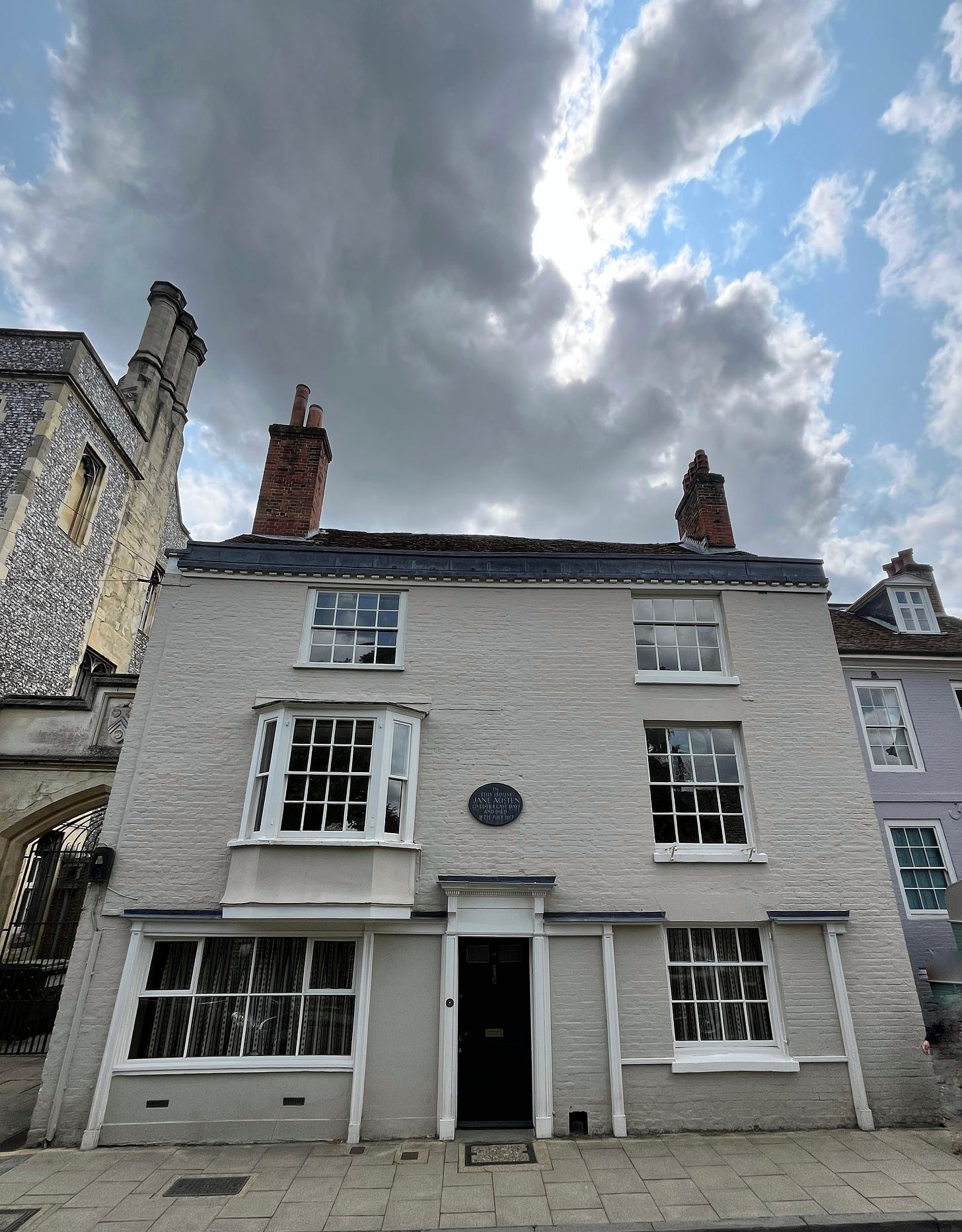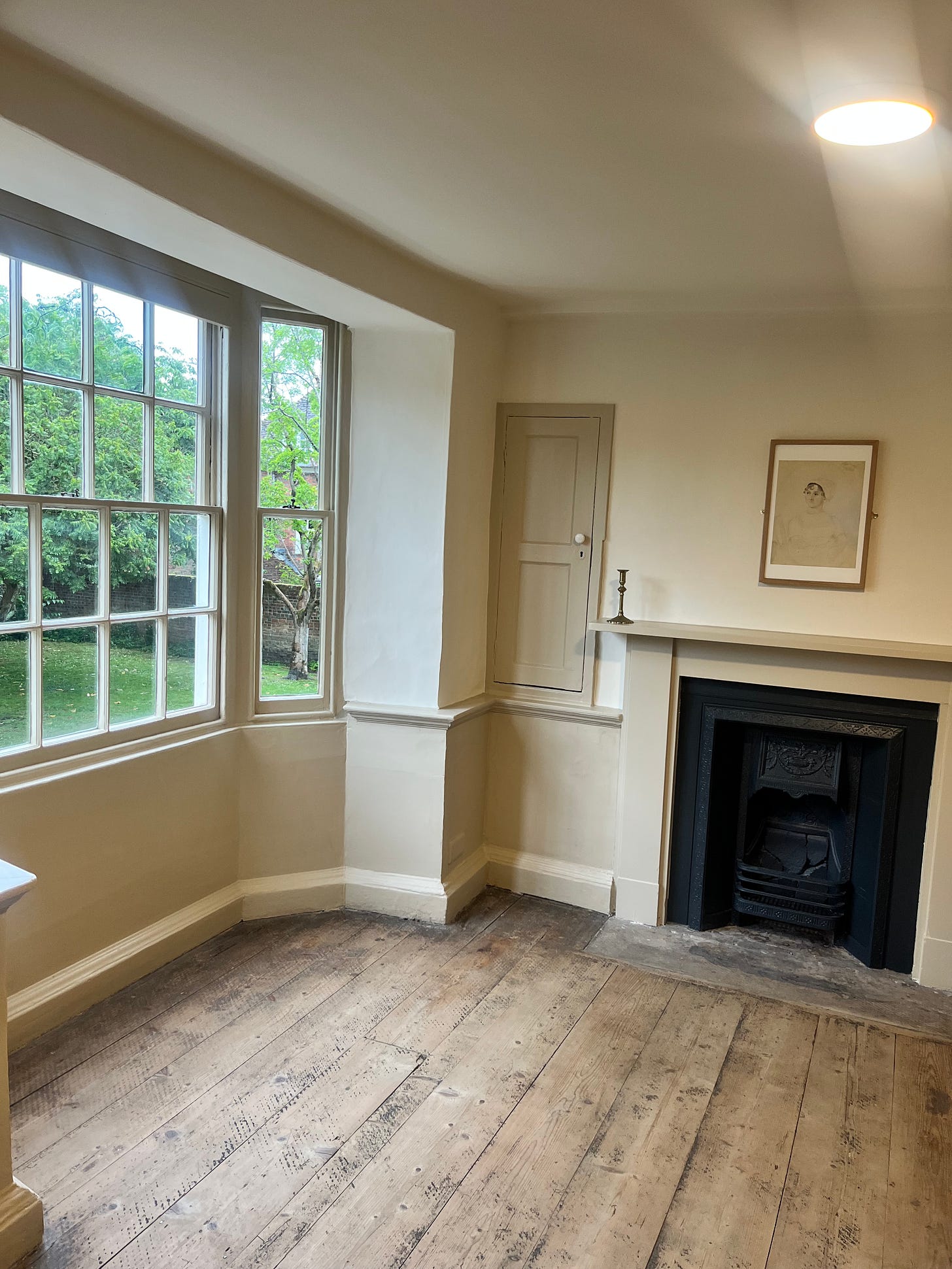My month of Jane
A cottage of her own, excused from the rhubarb, and the satisfaction of the spinster
This weekend, I had the very great pleasure of interviewing Gill Hornby about her new novel, The Elopement, a very fine tale of two families - the Austen-Knights and the Knatchbulls, the choices on offer for Regency women of a certain class: marriage - for love if you were very lucky, by arrangement if not viz. Fanny Knight, pragmatically married off to the insufferably pompous Sir Edward Knatchbull, who needs a step-mother for his brood of children; the single woman - destined to be “the one good woman to rely upon”; or perhaps luckiest still, the satisfied spinster - Cassandra and Jane. Hornby is very funny, very charming, and very good on Austen and writing in an Austen-esque manner. She is also a walking Austen encyclopeadia and the champion Cassandra Austen deserves. Jane’s best beloved; the sister who allowed Jane to write – had Cassandra married Jane would not have been able to do so.
It was a the perfect ending to my month of Jane. I visited her house in Chawton for my birthday [above: the small table on which she wrote her novels], and last week I went to No. 8 College Street where Cassandra brought Jane in the final weeks of her life, in the hope that a fancy city doctor would be able to cure the mysterious illness which plagued Jane. Unknown but speculation includes Addison’s disease, lupus, Hodgkin’s disease, and arsenic poisoning.)
Once a confectioner’s and now owned by Winchester College (where the Austen boys were educated) and formerly used as accommodation for academics, No. 8 has been restored to a state as near-to Austen’s day as possible (with help from that master of paint, Edward Bulmer). It is open to the public for a brief spell to mark the 250th anniversary of Austen’s birth. It is a squat, attractive building, sandwiched between College buildings, P&G Wells - one of England’s oldest bookshops, where the Austens were customers, and an opportunistic mobile coffee cart.
It was a suitably melancholy day when I visited the place where Jane breathed her last: the rain lashing at the window, the skies a flat grey. The first-floor rooms are small and modest - it’s a stark reminder that Jane and Cassandra were more disenfranchised Dashwoods than a Pemberley polluting (in the words of Lady Catherine de Burgh) Elizabeth Bennet.
Cassandra and Jane rented from a local woman, Mary David, who I like to imagine bustling in with food to tempt the invalid (there is no kitchen in evidence). It is “very comfortable” and “We have a neat little Drawing-room with a Bow-window”, Jane wrote to her nephew, brightly. At first she was able to “walk from room to room” and wrote optimistically of “gaining strength” but the Winchester surgeon (one they could ill-afford) was to no avail. She took to the sofa, with its view over the street into the headmaster’s garden [below].
In a letter to her niece Fanny about Jane’s final days, Cassandra wrote. “When I asked her if there was anything she wanted, her answer was she wanted nothing but death.” On July 17, Jane was seized by “faintness” and such “sufferings” the doctor was summoned. “I sat close to her with a pillow in my lap to assist in supporting her head, which was almost off the bed, for six hours; fatigue made me then resign my place to Mrs. J. A. for two hours and a-half, when I took it again, and in about an hour more she breathed her last.” Jane died in these humble, little rooms with their low ceilings, her head on the lap of her beloved Cassandra.
“I have lost a treasure, such a sister, such a friend as never can have been surpassed,” Cass wrote. “She was the sun of my life, the gilder of every pleasure, the soother of every sorrow; I had not a thought concealed from her, and it is as if I had lost a part of myself.”
I stood in the first floor bow window, in that room where Jane Austen spent her final days; where Cassandra stood, watching the small funeral procession on the morning of 24th July - brothers, Edward, Frank and Henry; nephew Edward (women were not permitted to attend funerals. Too much for their delicate sensibilities, perhaps?). The coffin was carried on a cart, and turned under Kingsgate, bearing Jane towards Winchester cathedral. “I watched the little mournful procession the length of the Street & when it turned from my sight … I had lost her for ever.” How my heart breaks for Cass.
I recalled a moment in The Elopement, when Hornby has Cassandra reflect upon Jane’s death. “With every faith she had carried her ailing sister away from this very village and into a city. She too had hoped to find superior methods - was promised that Jane would be cured! Instead, she denied that dear home-bird of life’s ultimate comfort: a peaceful death with her loving family about her, and in her own bed.”
It is impossible not to think Jane would have preferred to die at home, and be buried in the little churchyard at Chawton, near the cottage where she lived with Cassandra, their mother Mrs Austen, and Martha Lloyd (even more impecunious than the Austens; sister of the noxious Mary, who married James Austen).
The house exudes warmth: I have visited on a bitterly cold day, when the frost nipped, and when the rain fell - and all was cosy inside. You feel the contentment.
This is a photo-heavy post (one woman goes snap-happy at Chawton), so you may have to click through to view it in the Substack app or online. It’s also for my paid subscribers - the Cassandras in my life!







